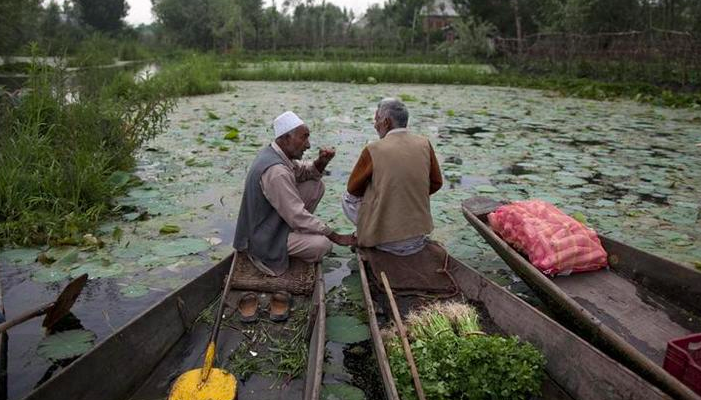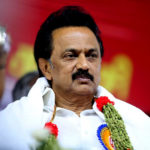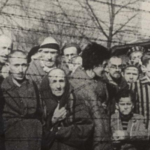January 19, 2020, marked 30 years of the violence targeting the Kashmiri Pandit community, which led to a mass exodus.
The overwhelming narrative that has been fuelled by the current political climate of the country shames and blames Kashmiri Muslims for being silent spectators. This has stirred sufficient animosity between the two communities. However, some voices have prevailed, attempting to bridge the divisions between the Kashmiri Muslims and Kashmiri Pandit communities.
Looking back at the days that still haunt, Vijay Dhar, pro-vice chairman of the Delhi Public School at Srinagar, recounts his experience of the 1990s. Dhar says, “I left with my family in 1990 and came back in 1992 because my mother wanted to be back in Kashmir. Believe me, for five weeks, our Muslim neighbours were bringing us breakfast every day.”
Writer Neerja Mattoo also remembers the beautiful amity between Kashmiri Pandits and Kashmiri Muslims. Speaking of the days of violence in Kashmir, Mattoo says that ultimately it was Muslims who ensured Pandits’ safety.
When at the worst of the 1947 riots, communal hatred had spilled so much blood all over the subcontinent, nothing like that happened in Kashmir (though incidents took place in Jammu), says Mattoo. Even minority Pandits felt protected.
Also read: What about the Kashmiri Pandits? – Thirty Years Later, Make the Question Count
“When tribal invaders reached Baramulla, killing many Sikhs and Pandits, the local Muslims were protective of their neighbours. My own family moved in with a Muslim family for three or four days, on their insistence. The older Pandit generation wouldn’t eat food cooked in a Muslim household, so they even gave them a makeshift chulha to cook their food separately,” she says.

A protest by Kashmiri Pandits. Photo: PTI
When asked about how the current narrative in the country holds Kashmiri Muslims accountable for perpetuating the exodus, Mattoo is clear on the premise.
“I think the majority of Muslims were as ignorant of what was happening as the Pandits and besides I don’t think they could’ve done anything because they were also under threat. You have all kind of elements. You can’t blame the whole Muslim community, there are all kinds of people who take advantage of the situation, including looters, plunderers, people who are brainwashed into hating this minority thinking that they are representatives of India.”
Talking about the anti-Muslim sentiment among Pandits today, Sameer Kaul, chief national spokesperson of the National Conference explained that this discourse has existed since the 70’s, since the turbulence in the valley.
“Pandits feel that Kashmiri Muslims have not been fair towards them, collaborated with mobs and succumbed to mass hysteria at that time. That is not completely true. There was mass hysteria and some Muslims did join the mobs, but not all Muslims. The hysteria was also engineered very meticulously. There were many Muslims who didn’t like what was happening but they were also scared and could not rise to the occasion.”
Many Kashmiri Pandits migrated, while many chose to stay back. With mass killings and heinous violence against women that shook Pandits to the core; many Kashmiri Muslims risked their own lives to save them.
Also read: The Mindset of Certain Kashmiri Pandits
One such memory is rekindled when activist Ashima Kaul narrates the tale of what happened when a hoard of Kashmiri Muslims began pelting stones at her aunt’s home.
“When the crowd came closer, our Muslim neighbours formed a human chain around our house. These are the complex dynamics in Kashmir; they can’t be read as black and white.”
Ashima, who is the founder of Yakja (meaning together in Kashmiri) works with students from different parts of the region for youth development and peace-building, and strongly believes that a big chunk of the Pandits’ anger, anxiety and anguish is due to the fact that the perpetrators were not booked.
This sentiment was also acknowledged by NC spokesperson Sameer Kaul too. “Now, with the reading down of Article 370, Pandits are questioning the Centre’s move. Pandits still stand where they are, nothing has been done to empower them,” he adds.
Vijay Dhar too feels that no one came to their rescue, especially not the law. “However, the one person who genuinely helped the Pandits was Bal Thackeray. When the Pandits reached out to Thackeray, he asked them whether they wanted houses, financial aid, etc. The Pandits requested that they wanted the future of their progeny to be secured. Thackeray reserved 1,000 seats in colleges across Maharashtra for the Pandits, without capitation,” he said.

File photo of agitation by members of All Parties Migrants Co-ordination Committee (APMCC) and Kashmiri Pandits Sangarsh Samiti (KPSS) . Photo: PTI
Kashmir is not a place, Kashmir is not a region and it is certainly not a borderland. For Kashmiris, be it Pandits or Muslims, as they don the pheran and plant the karakuli over their heads, they slip into the fabric of coexistence, the fabric of Kashmiriyat.
This fabric of Kashmiriyat is what this piece tries to explore through the voices of these Kashmiri Pandits. Writer Badri Raina, believes that with the exodus, a majority of Pandits came under RSS influence and their Kashmiri ethnic identity began to be subsumed into a sectarian and religious one. He also claims that in a similar way, the Wahabis found an entry into Kashmiri Sufi Islam, leading to a radicalisation of many youngsters.
But Raina admits that somewhere down the line, the warmth still exists. “I go to the Valley every year among the people and find quite the same courtesy that I was used to when I lived there till 1961.”
PDP spokesperson Mohit Bhan could not agree more.
“We still see Kashmiri Muslims and folk singers as guests at various Kashmiri Pandits weddings. We also see Muslims seeking advice from their Pandit friends on various things. For me this connection of sitting together and sipping tea after having a deadly argument is the essence of Kashmiriyat.”
When Lal Ded, Nund Rishi, Rasool Mir or Mahjoor wrote in Kashmiri, they would’ve never imagined that the speakers of the language would develop a disenchantment this deep among themselves. Mattoo, when asked about the fissure that has emerged among the community said that she sees Kashmiris losing their language as a result. She said, “Muslims write Kashmiri in the Persian script, Pandits use the Devnagri script, very soon they won’t even be able to read each other’s words, even though they speak the same language.”
Also read: Four Fabulous Female Bards from Kashmir
Owing to the larger Hindu polarisation campaign of the ruling party, the Kashmiri community suffers greatly as politicians continue to employ the Pandits’ painful memories of the exodus to further their anti-Muslim sentiment.
Bhan said, “This is visible through the fact that nothing concrete has been done in past 30 years for return and rehabilitation of Pandits except sloganeering and hollow promises.” Neerja Mattoo is among many who agreed to this sentiment.
Pandits took to Twitter with the hashtag #HumWapasAayenge. The voices who lent their thoughts here have also expressed their desire to return to an amicable plain. While Vijay Dhar and Sameer Kaul urging the communities to move on to a stronger relationship, Badri Raina and Mohit Bhan claim that the remnants of the relations still exist at personal levels.
What still remains a question is, how do future generations rekindle, guard and strengthen the relationship between the Kashmiri Pandits and Kashmiri Muslims? Especially in this era of saffronised propaganda where the suffering of one community is being employed to alienate and isolate the other?
Agha Shahid Ali, the famous Kashmiri poet in exile once wrote, “My memory comes in the way of your history”.
The memories that sit tight in the hearts of Kashmiri Pandits are a brazen answer to those who continue to make efforts to scrap down Kashmiri identity, the way they did Article 370.




